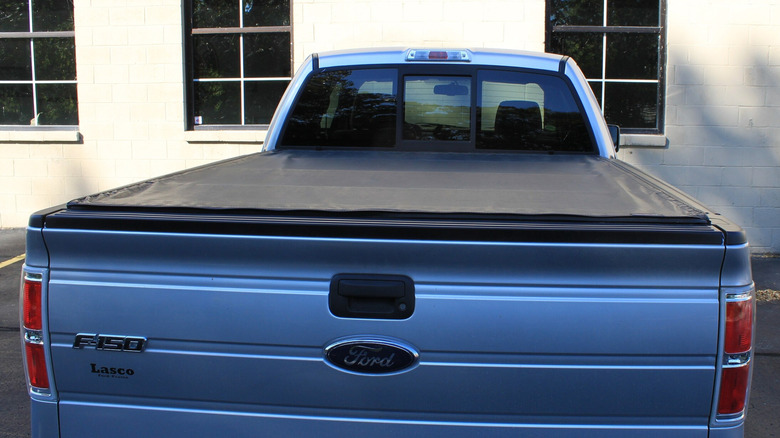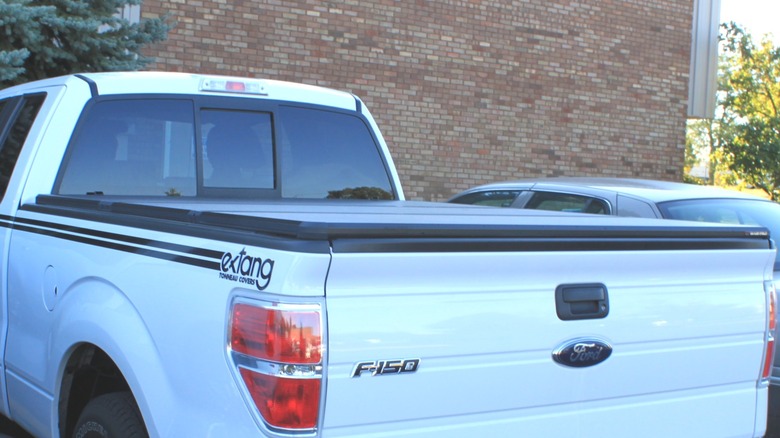Do Tonneau Covers Improve A Truck's Gas Mileage?
The history of the product we know as a tonneau cover started sometime in the early 1900s. It's actually a French word with multiple meanings, one of which is "barrel." A French barrel, you say? We must be talking about wine, right? In a roundabout way, yes. It can also be used to describe an automobile's rear seating compartment.
Many early cars at the turn of the century didn't have roofs, so the rear seating compartment — the tonneau — sat open to the elements. The tonneau had a barrel shape that helped protect both the occupants and the seats from debris as the vehicle traveled down the right side of dirt roads.
Industrious car makers began providing soft leather covers that stretched from one side of the vehicle to the other, shielding the open rear compartment from all the nastiness. Another benefit was that it kept owners from whining (see what we did there?) about Mother Nature ruining their expensive new car. Before mechanically horse-powered beasts, a tarp (or tarpaulin) covered openings on a horse-drawn cart or buggy. When Utah's Bonneville Salt Flats became the mecca for chasing speed records, drivers used leather, old bedsheets, and scraps of canvas to fashion crude covers to close any openings that created drag. As automobiles became more prolific, the terminology changed from tarp to tonneau cover.
So, you can see why such a cover might benefit the wide opening of a truck bed. Back in 2007, Motor Trend conducted a fairly stringent test involving three different trucks, and results showed a tonneau cover does, in fact, improve gas mileage — but with some caveats.
Go ahead and cover that bed up!
The test involved a Chevy Silverado, a Dodge Ram 1500, and a Ford F-150 making laps around a track at 45 mph. The Hemi-powered Dodge had the best gains, showing an improvement of 1.3 miles per gallon. The Chevy netted a measly 0.5 mpg gain, while the Ford ran into troubles and was removed from the test. "Highly credentialed engineers" told them aerodynamic drag increases with speed — even as much as 75% just going from 45 mph to 60 mph — so a tonneau cover would probably increase fuel efficiency even more at those higher speeds. Aerodynamics is the science of how air flows around an object.
More recently (December 2022), the guys over at Fast Lane Truck performed a test driving a Dodge Ram 1500 over the same 57-mile loop, and while it wasn't as stringent as the Motor Trend experiment, they too showed a slight mpg gain with a tonneau cover. Back in 2014, Brad Richards (Design Manager for Ford Motor Company) appeared on Autoblog and stated that based on testing in a wind tunnel with their trucks, a cover does make the truck more efficient. It keeps the air from gathering in the back of the cargo box, creating less drag, which in turn makes the engine not work as hard.
One final note worth mentioning. The Motor Trend test showed gains, but not every truck is built the same, so results will vary depending on each vehicle's aerodynamics, configuration, engine, and options. Overall, however, a tonneau cover clearly does more good than harm, especially hardcovers, which can act as a theft-deterring security measure.

